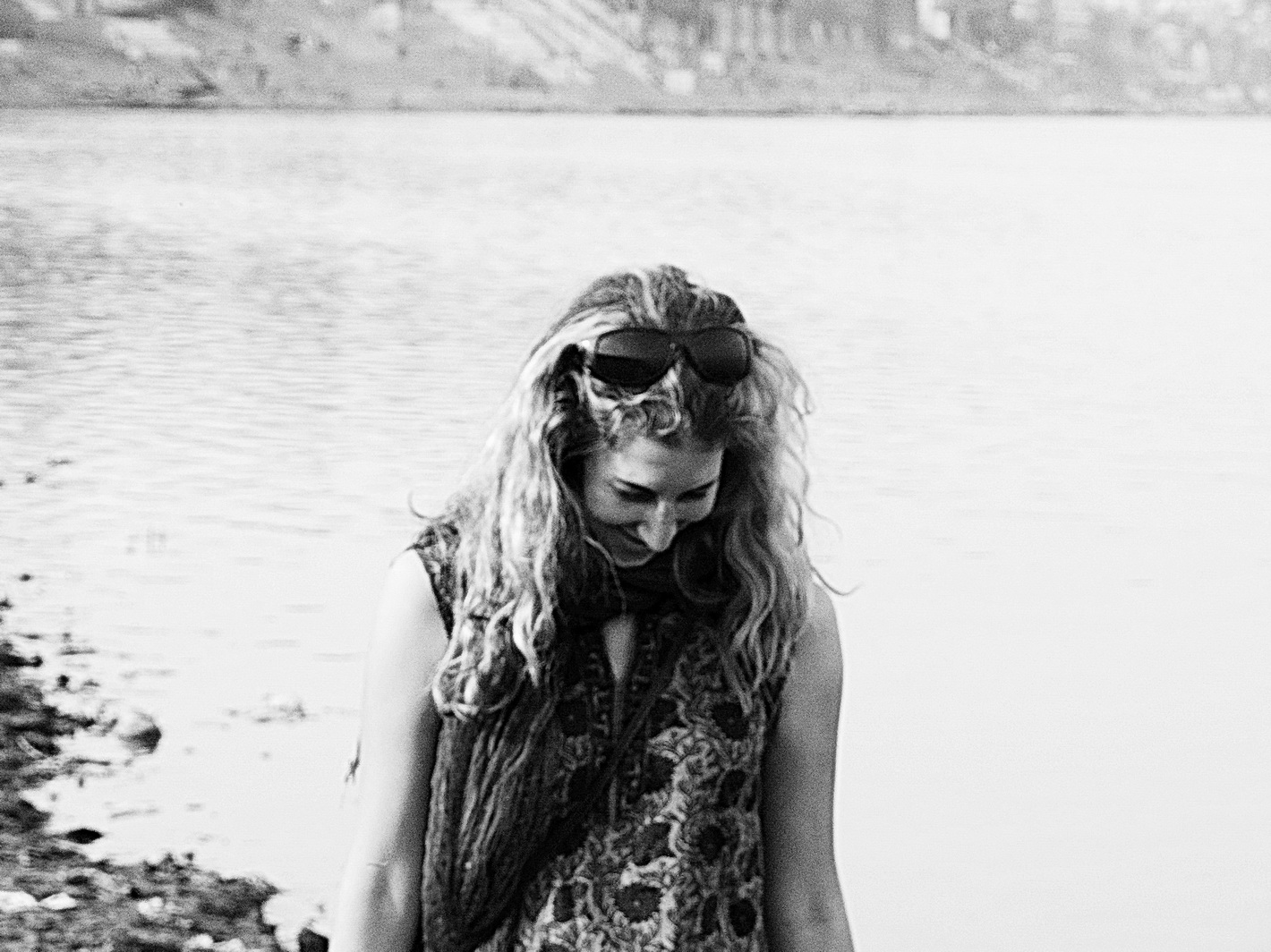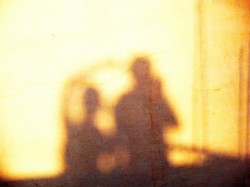
There are so many things to laugh about through the salty, sweaty tears life brings.
Sometimes, there are obstacles to get through along the way to that golden, laughing place.
August. Rishikesh, India.
It’s monsoon season. It rains all the time. There are almost no tourists, not compared to the last time we were here, anyway.
We arrived in the rain, found our old guesthouse from last year standing as a monument to ruins, wet, sewage all over the place, and insanely, open for business and more expensive than the year before.
We stood on a slippery, cow dung-infested boardwalk overlooking the Ganges, trying to keep our bags dry, wondering what possessed us to come here.
We walked along muddy, slippery pathways searching for somewhere to rest our weary bodies, and eventually found a new heaven: a tiny ashram with only eight rooms, and a brilliant yoga teacher-in-residence happily teaching only two or three people a day.
This was near the end of a six-month journey, full and gorgeous and chaotic and haunting. We almost threw in the towel completely when we saw how collapsed and forlorn this town was in the rain.
I’m so glad we didn’t.
I envision day after day doing nothing but meditation and peering into the darkest depths of my soul, a constant desire of mine, nearly always thwarted by both day-day-distractions and the intrinsic nature of my mind.
One morning, during a dawn meditation, I’m already irritated and can feel a fight coming along. Concentration is out the window.
My mind is stormy.
Still, I can’t help but be transfixed by the sounds outside. Chanting, soulful Hindi pop, kids in the courtyard behind me, the trinkle of water as someone washes at a leisurely pace, and the heaving and hacking morning ritual of one of the residents here. Ashram and surrounds waking up.
I take it slow during my morning yoga practice. I don’t go any easier on myself physically, but I make sure to be very aware of my movements, and it feels really good.
On the way to breakfast, however, my mood gets the better of me as we clang along a narrow bridge filled beyond what I would consider to be capacity with monkeys, cows and throngs of people attempting to pass us on their enormous motorbikes.
On the other side, wiping sweat off my face, I say something to my partner that triggers that deadly silence that usually precedes a fight. And it’s just started to rain again.
It also doesn’t help that we’re accosted by the usual hawkers of postcards and grilled corn maps of India, though nothing can really help right now. I feel like I’m drowning.
Then a really ragtag guy comes up to me. He’s not a sadhu (one who seeks the truth)—many of the town’s inhabitants are—but this guy’s not in orange.
Messy black hair, thin, worn, baggy clothes, 10 o’clock shadow. In broken English, he asks me if I’ll read his poems.
“Read your poems?”
“Read for corrections my poems ma’am.”
How can I say no? Poetry is not usually the writing form I gravitate to, but something has compelled me to write a whole collection of it during this trip. Maybe the universe is telling me something, in the guise of this handsome, scraggly artist.
Unknowingly, he’s also come to save us from ourselves, standing at the busiest, most bustling area of town, the Indian crescendo-peaking, spiritual standards blaring from CD shop speakers all around us.
“Okay,” I say. “I’ll read your poems.”
Meanwhile, two Indian tourists, male, approach.
“One photo?”
“You can see we’re a little busy, sorry,” I say. Between the incipient fight and the poet and the cucumber sellers ogling us, I’m overwhelmed.
Of course, they don’t let up. They just stand there, armed with their cell phone cameras, while the rest of the scene unfolds.
The poet takes out a notebook from his dirty bag, and starts flipping through it. Like my journals, his are filled with tiny words. Words everywhere. His are in Hindi and English. These seem more like novel excerpts than poems.
“Um, these seem a little long to look at right now,” I say.
Wordless, he continues flipping through his book and points to one half page written in English.
“Okay,” I say and take the notebook.
It’s about men and women and finding God’s Grace, and other profound things. It’s beautiful. It’s telling me something about humanity and I need this reminder, sopping wet and choosing to fight with the man I love instead of feeling as alive and wondrous as the situation warrants.
The grammar is a problem, but this is a poem, and I like it all disjointed. I love its imperfections.
“Um, it’s amazing, thank you,” I say, almost speechless.
“Fix,” he says.
Um.
“Pen?” he says.
I nod and he fishes a pen out of his bag and stares at me as I look at the mess of words on the page. The two tourists are still waiting for a photo.
“Okay,” I say. I mark a few words here and there and adjust some spelling. I correct words like scientific and manifest. Then I give this sharp-eyed genius his notebook back and he puts it in his bag, wordless.
It’s like he never gave it to me, like I never read the words.
The tourists jump in.
“Okay, one photo,” I say. We all huddle together, an awkward grouping.
One guy takes a photo while the other stands next to me.
“Put your arm around me,” says the guy.
“No, it’s okay, thanks,” I say.
“Put your arm around me.”
“She’s my wife,” my husband says in an attempt at pacification. I give him a small smile.
“Okay!” the guy says.
 Snap.
Snap.
“One more.”
They switch places; the photo is taken.
Okay, thank you good byes all round.
Then we go to eat, leaving the not-sadhu-saviour-poet and tourists behind.
We become consumed in make-up laughter over pasta and burritos while it rains.
The laughter dissolves everything else. And this is always—and must have always been—the goal.
Love elephant and want to go steady?
Sign up for our (curated) daily and weekly newsletters!
Editor: Catherine Monkman
Photos: Author’s own


 Share on bsky
Share on bsky




Read 0 comments and reply